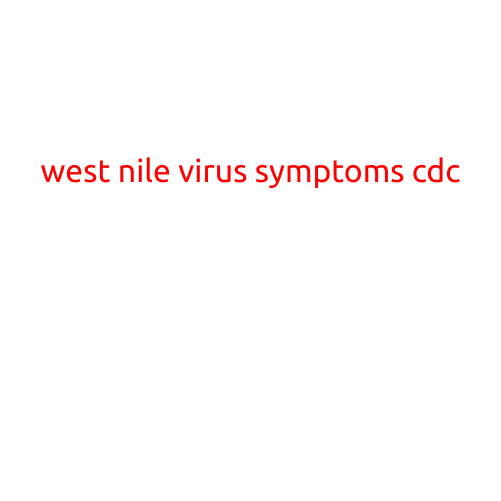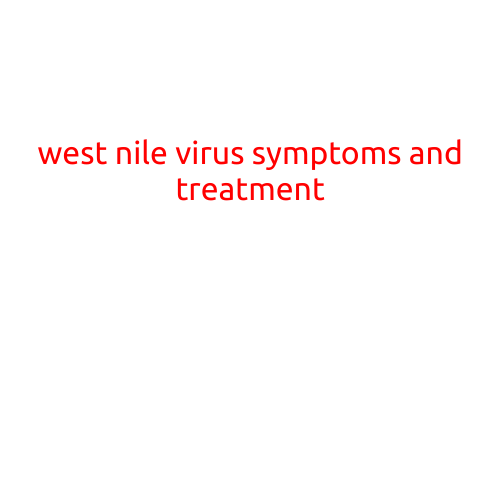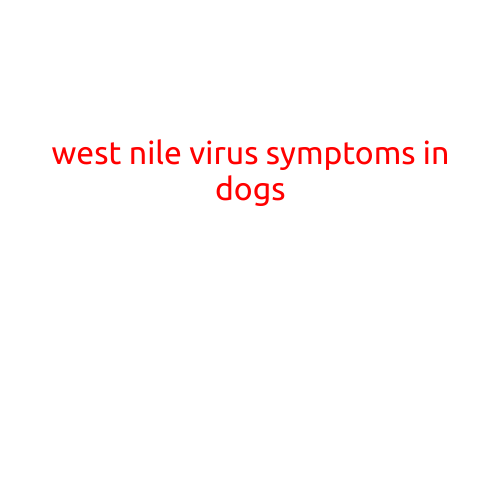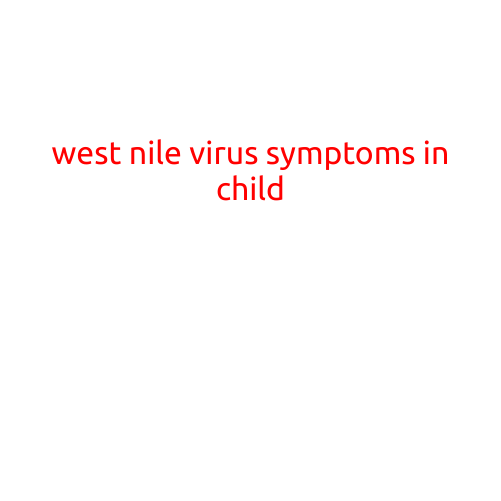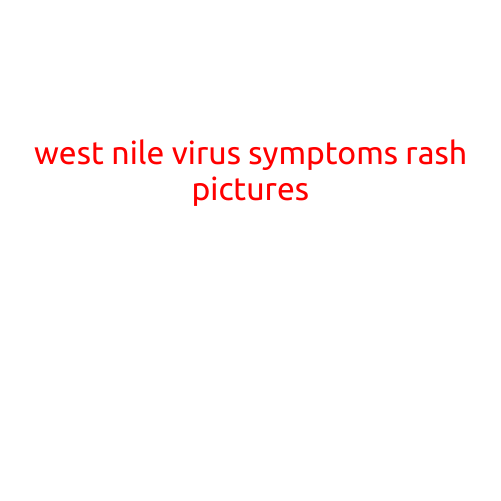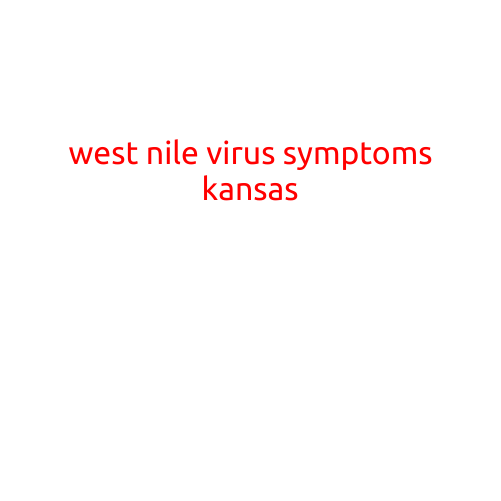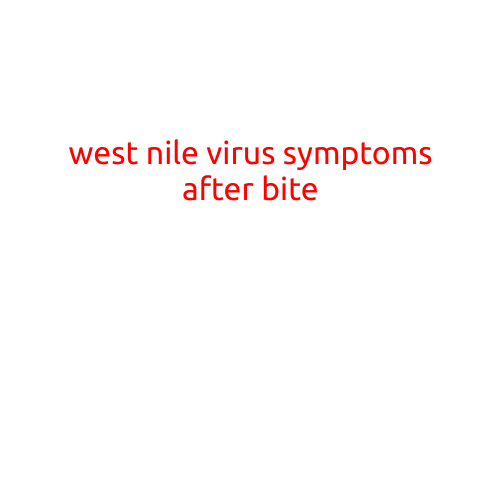
West Nile Virus Symptoms After a Bite: What to Expect and How to Manage
West Nile virus (WNV) is a potentially serious and sometimes deadly disease spread by infected mosquitoes. While most people infected with WNV will not develop any symptoms, those who do experience symptoms may not show them until weeks or even months after being bitten by an infected mosquito. In this article, we will explore the common symptoms of WNV and what to do if you have been bitten and are experiencing symptoms.
What is West Nile Virus?
WNV is a flavivirus that is typically spread to humans through the bite of an infected Culex mosquito. The virus is most commonly found in the United States, Africa, and Asia, and outbreaks have been reported in many countries around the world. While WNV is not a new disease, its outbreaks have increased in recent years due to climate change and the presence of breeding grounds for mosquitoes.
Symptoms of West Nile Virus
Symptoms of WNV can range from mild to severe and life-threatening. If you have been bitten by an infected mosquito and develop symptoms, you may experience:
- Mild Symptoms:
- Headaches
- Body aches
- Fatigue
- Slight fever
- Rash
- Severe Symptoms:
- High fever
- Neck stiffness
- Confusion
- Seizures
- Weakness or paralysis
- Vision loss
- Difficulty speaking or swallowing
When to Seek Medical Attention
If you have been bitten by an infected mosquito and are experiencing symptoms, seek medical attention immediately. Even if you have mild symptoms, it is essential to be evaluated by a healthcare provider to rule out more severe complications.
How to Manage Symptoms
While there is no specific treatment for WNV, your healthcare provider may recommend:
- Rest and hydration to alleviate mild symptoms
- Pain relievers, such as acetaminophen or ibuprofen, to manage headaches and body aches
- Antihistamines or corticosteroids to reduce itching and swelling
- Antiviral medications to treat severe cases
- Hospitalization for severe cases, which may require intensive care and respiratory support
Prevention is Key
The best way to manage WNV symptoms is to prevent infection in the first place. Here are some ways to reduce your risk:
- Use insect repellent with DEET, picaridin, or oil of lemon eucalyptus when outdoors
- Wear protective clothing, such as long-sleeved shirts and pants
- Avoid peak mosquito hours (dawn and dusk)
- Remove standing water around your home to eliminate breeding grounds
- Install window and door screens to prevent mosquitoes from entering your home
- Eliminate mosquito breeding sites, such as flowerpots, bird baths, and pet dishes
Conclusion
WNV is a serious disease that can cause mild to life-threatening symptoms. If you have been bitten by an infected mosquito and are experiencing symptoms, seek medical attention immediately. By understanding the symptoms of WNV and taking preventative measures, you can reduce your risk of infection and protect yourself and your loved ones.
